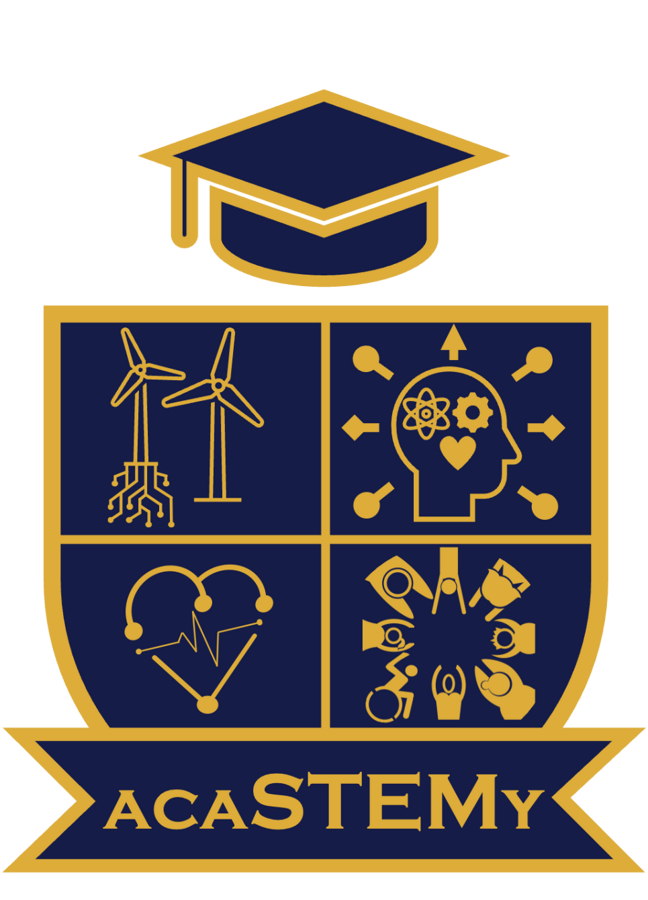acaSTEMy 3rd hybrid seminar - “Sustainable agriculture (for people and planet) and new forms of food”
The Institute of Education of the University of Lisbon organize and invites to the 3rd AcaSTEMy hybrid seminar titled “Sustainable agriculture (for people and planet) and new forms of food” by Professor Luís Goulão and Professor Anabela Raymundo.
The hybrid seminar will take place on the 30th of April 2025 from 10:00 to 13:00 (UTC+1) at the Institute of Education of the University of Lisbon.
The Zoom link for online participants is: https://videoconf-colibri.zoom.us/j/92457143941
Agenda
10:00–10:05 Welcoming words from the project coordinator of the Portuguese team, Prof. Cláudia Faria
10:05–10:25 Presentation on "Sustainable agriculture (for people and planet)" by Prof. Luís Goulão
10:25–10:45 Presentation on “New forms of food” by Prof. Anabela Raymundo
10:45–11:00 Questions from the audience
11:00–12:45 Discussion with pre-service students (Biology & Geology and Physics & Chemistry)
12:45–13:00 Summary of the seminar and closing remarks by Prof. Cláudia Faria
Note:
The first hour of the seminar will be
in English by videoconference. The remaining two hours of the seminar
will be held in Portuguese in an in-person format.
More infos:
Abstracts
"Sustainable agriculture (for people and planet)"
Sustainable agriculture must balance strategies to cope with the increasing global demand for [healthy] food with the priority to preserve environmental integrity. This talk explores the integration of the sustainability concept into the food security definition, discussing the implications of integrating agency and ecological resilience to ensure long-term results. The concept of sustainable intensification is examined as a dual pathway to increase agricultural productivity while guaranteeing environmental sustainability and promoting territorial embeddedness, highlighting contextualised roles for precision agriculture, agroecology, or biotechnology in achieving these goals. Discourse surrounding sustainable agriculture often suffers from myths and inconsistencies, such as the oversimplified opposition between agroecological intensification and “conventional” farming, the assumption that local food systems are inherently more sustainable, and the ideological framing of "natural" versus "technological" solutions. Here, we argue that addressing these misconceptions is crucial for evidence-based policy and practice, to ensure that agriculture remains both productive and regenerative, serving both people and the planet in a rapidly changing world.
“New forms of food”
The sharp growth of the world population is evident, with studies indicating that by 2025, we will be more than nine billion people living on the planet. Conventional agricultural systems will not be able to meet these needs. Added to this are the shortages of water, arable land and biodiversity. Protein scarcity is already a reality, and several projects have been developed worldwide to identify alternative sources of protein that are nutritionally balanced, low-cost and versatile in their applications. This presentation will highlight the use of proteins from legumes, algae, mycoproteins, and proteins derived from cellular agriculture. The involvement of companies in the development of products based on these proteins is fundamental so that consumers can rethink and redesign their diets toward healthier and more sustainable eating habits.
Short Bios:
Luís Goulão, PhD in Agronomic Engineering from the Technical University of Lisbon and post-graduate in Sustainable Agriculture. Currently serving as Professor and Vice-Dean of the School of Agriculture at the University of Lisbon (ISA). His research and teaching bridge agriculture, food security, and nutrition with food policy and development outcomes, at national and global levels, emphasizing tropical regions’ contexts. He co-chairs the University of Lisbon’s Thematic Interdisciplinary Network “Agri-Food and Forestry (redeAGRO)”, and is a member of the coordination board of the university’s Interdisciplinary College “Food, Farming and Forestry (F3)”. He is also part of the Coordination Board at ISA’s Research Centre “Linking Landscape, Environment, Agriculture and Food (LEAF)”, and the Scientific Committee of Doctoral Programmes in “Agricultural Innovation in Tropical Food Chains”, “Sustainability Science”, and “Development Studies”. Additionally, he serves on the Advisory Board of the Agrinatura-EEIG, the European Alliance on Agricultural Knowledge for Development, to support Agricultural Research for Development. Previously, he was a researcher at the Tropical Research Institute (IICT), coordinating the “Agri4Safe” Research Group, which focused on agriculture and food security research to support international cooperation with African countries. He was also a Visiting Lecturer at the Eduardo Mondlane University’s Centre of Biotechnology in Mozambique. He has worked as a European expert for the EU-Africa High-Level Policy Dialogue Working Group on “Science, Technology and Innovation for Food and Nutrition Security and Sustainable Agriculture (FNSSA)”, contributing to the roadmap towards building the EU-Africa Research and Innovation Partnership.
Anabela Raymundo, is a Chemical engineer, MSc in Food Science and Technology and a PhD in Food Engineering. Associated Professor with Habilitation, integrating the LEAF (Linking Landscape, Environment, Agriculture and Food) – coordination of the group Food and Feed https://www.isa.ulisboa.pt/en/leaf/research-groups/group-3-food-feed. Main research areas of interest: functional properties of macromolecules; development of new food products; evaluation of the rheological behavior of different food matrices and relations with the structural composition. Main work focused on the use of poorly exploited food sources (e.g., microalgae and seaweed biomass, insects and food industry by-products) for the development of high-value products. Participates in several national and international research. https://orcid.org/0000-0001-5266-1685. Coordination Committee of the TERRA Associated Laboratory. Board Member of PortugalFoods and a founding member of CoLab4Food. Coordinator of the Master’s in Food Engineering (ISA). Appointed Member of the National Council for Science, Technology and Innovation (CNCTI), Portugal – a government’s advisory body.
